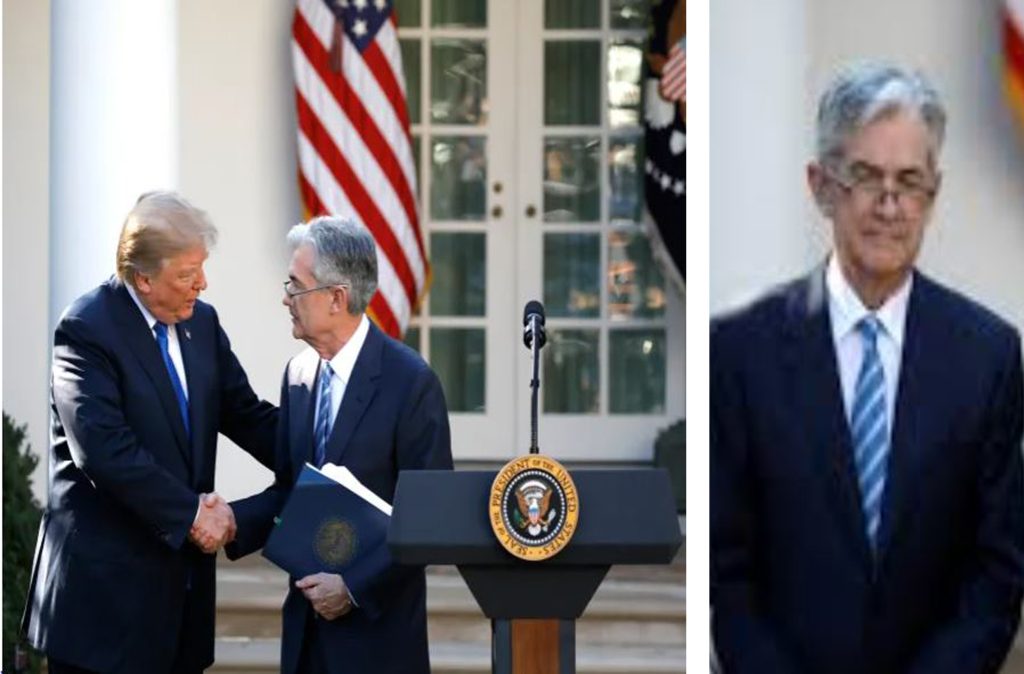
In a new development that has sparked controversy, former U.S. President Donald Trump has once again taken center stage with fiery remarks about Federal Reserve policies, triggering widespread reactions in economic and political circles. This comes at a time when the U.S. economy is experiencing significant fluctuations, amid fears of slowing growth and rising inflation.Trump and the Federal Reserve
Trump’s Remarks Shake the Economic Landscape
During a recent television interview, Trump strongly criticized the Federal Reserve, accusing it of “deliberately causing economic crises” and “negatively impacting the American working class.” He called for radical reforms in the central bank’s structure, expressing his belief that its current decisions are “reckless and only serve elite interests.”
These remarks are not the first of their kind from Trump, who repeatedly attacked the Fed during his presidency, particularly when it raised interest rates. This time, however, his criticism comes amid more complex economic conditions, with Americans facing rising prices for essential goods and declining purchasing power.
Expert and Analyst Reactions
Trump’s comments have stirred debate among economic experts, with opinions divided between those who support his critique and those who oppose it.
- Supporters: Some analysts argue that Trump is “shedding light on real problems,” pointing out that recent Federal Reserve policies have widened the wealth gap. They also noted that the central bank has been “too slow in tackling inflation,” worsening citizens’ financial struggles.
- Opponents: On the other hand, some economists believe Trump’s criticisms are “inaccurate,” asserting that the Fed operates based on purely economic standards. They emphasized that raising interest rates was necessary to curb inflation and that Trump’s accusations “lack evidence.”
Impact on Financial Markets
Despite the sharp criticism, U.S. financial markets did not react violently, with the Dow Jones and Nasdaq indices remaining relatively stable. However, some analysts warned that continued debate over Fed policies could increase market uncertainty, especially as the U.S. presidential election approaches.
Is Trump Returning to the White House?
This controversy unfolds amid Trump’s heated election campaign as he seeks a return to the White House in the 2024 race. He appears to be relying on populist economic rhetoric to attract voters, particularly as economic concerns persist among Americans.
Some observers noted that Trump’s attack on the Fed is “strategic,” positioning himself as a defender of the middle and working classes. However, it remains unclear whether this strategy will sway independent voters, who may view his criticisms as “politicizing the economy.”
The Future of U.S. Monetary Policy
Beyond the criticism, the bigger question remains: What is the future of the Federal Reserve’s monetary policy?
- Continuation Scenario: If the central bank maintains its rate-hike policy, it could lead to further economic slowdown but might help control inflation in the long run.
- Change Scenario: If Trump wins the election, he could push for drastic changes in the Fed’s structure, including appointing officials more aligned with his policies.
Conclusion
Trump’s latest remarks have reignited debate over the Federal Reserve’s role and independence at a time when the U.S. economy faces major challenges. While his supporters see him as “voicing the people’s concerns,” his opponents view him as “divisive.”
It remains to be seen how this debate will influence the political and economic landscape in the coming months, especially as the election—which could shape U.S. monetary policy for years—draws closer.
Keywords: Trump, Federal Reserve, U.S. economy, inflation, 2024 election, central bank, monetary policy.

[…] of Past Meetings: Documents indicate Trump and Epstein met at Mar-a-Lago, reinforcing theories of a close […]